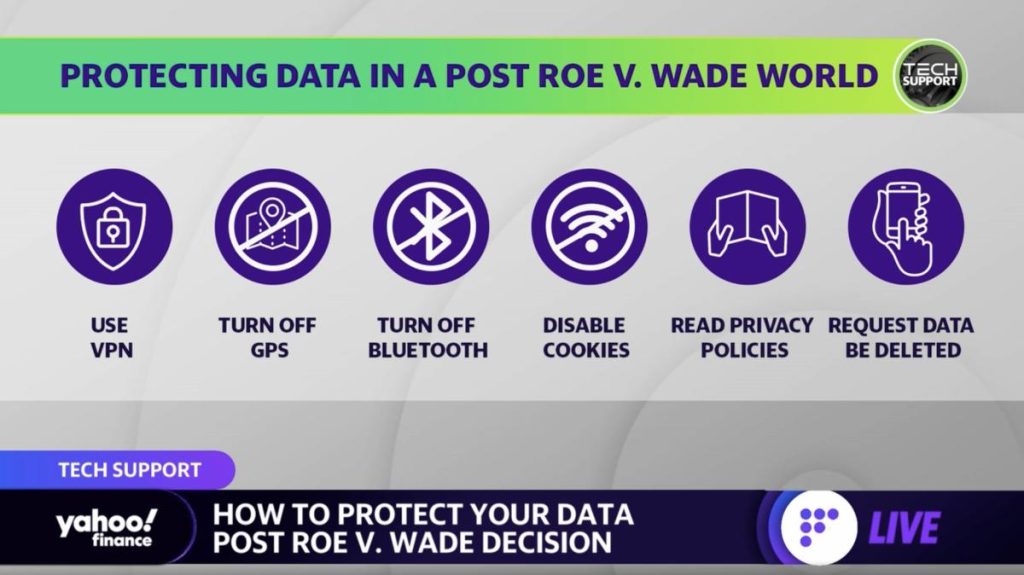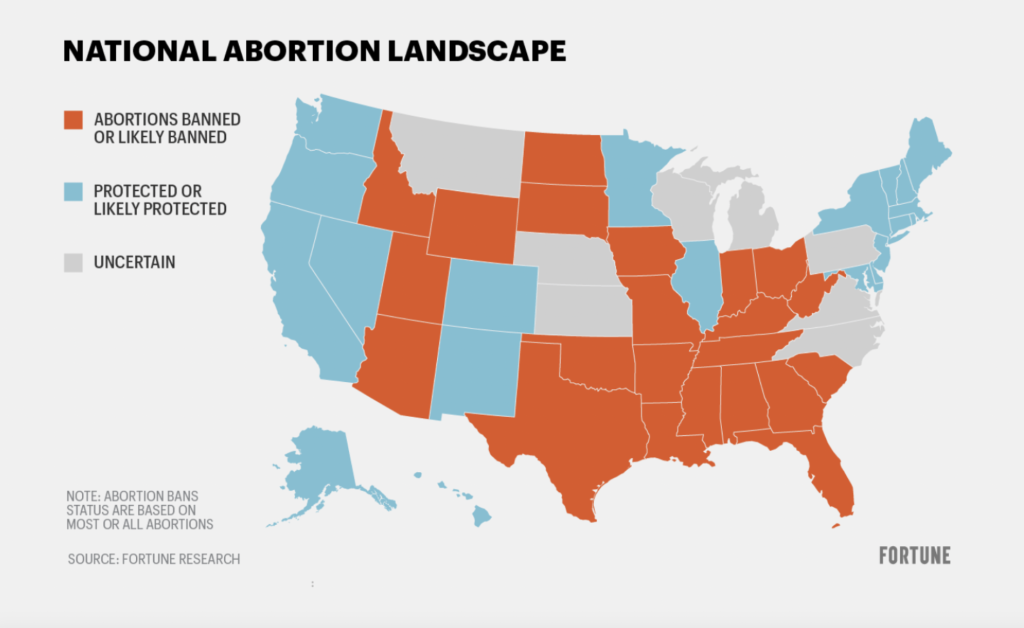Roe v Wade Overturned: Creating Unforeseen Data Privacy Consequences?
Anonymous | July 7, 2022
The Supreme Court’s jarring decision to overturn Roe v. Wade, banning abortion in many states across the country, has created an unforeseen consequence in data privacy. In an increasingly digital era, will data about abortions be used against women?
Data Privacy Concerns in The Aftermath of Roe v. Wade
The Supreme Court’s jarring decision to overturn Roe v. Wade has brought the United States back to an era before 1973. However, the increasingly digital world in 2022 is vastly different from that of 1973, with concerns that nobody knew existed until now. Nowadays, digital footprints are regularly used for legal prosecution, raising the concern that data may be used against those seeking abortions. In addition to call logs, texts, and other forms of communication, there now exists location specific data, payment records, and a whole host of information about abortion seeking women that did not exist in the past. What is even more frightening is the lack of protections and governance around this data. The question becomes, who will govern this new uncharted data territory?
The Current Landscape for Abortion Data Privacy
In the past, there have been several known cases that have used text messages and search history in abortion convictions. However, this data sphere will not grow to beyond basic forms of communication. For example, a simple Uber ride to an abortion clinic may be evidence in a legal case. However, the United States is not yet privy to the data privacy concerns that lie ahead. The Supreme Court deferring abortion to individual states presents a unique gray area for data governance regarding those abortions. Should data governance and protection come from the federal level of government? Or is this too a state’s decision to make? And who will relegate technology companies when it comes to collecting and protecting user data? These are all questions that are currently unanswered. In response to the overturning of Roe v. Wade, many companies have issued general public advisories to the public of how to best protect their abortion data, with figure 1 being a prominent example of this trend.

Ethical and Privacy Concerns of Abortion Data
With the emergence of this new field of data privacy for abortion related data, there are several opportunities for womens’ data to be exploited that need to be further explored. These concerns are best explored through the lens of Solove’s Taxonomy. Essentially, Solove’s Taxonomy divides potential data privacy concerns into several facets. In the context of our abortion related privacy concerns, some facets are more relevant than others. The first relevant facet is information processing, which covers concerns such as secondary use of data. In this case, it is entirely possible that sensitive data about abortions, for example from an app that tracks periods, can be sold, and exploited by a secondary party. The next relevant facet of Solove’s Taxonomy is information dissemination, which is perhaps the most relevant concern for abortion related data. This facet covers breach of privacy, as well as blackmail. For a user’s data that may be tied to an abortion, there is absolutely a chance that the confidentiality of this data can be breached. Additionally, if this data falls into the wrong hands, it can be used to blackmail users as well. Lastly, as found in figure 2, the country remains heavily divided on the issue of abortion. Another question that comes about from this is how will states share information about abortions if people are traveling over state lines to gain access to abortions? For example, if someone travels from Arizona to California to gain access to an abortion, how is information sharing going to work between the two states? There needs to be more concrete protections around the flow of information from state to state.

What Lies Ahead
In this new era of outlawed abortions in parts of the country, there needs to be more proactive legislation and protects the privacy interests of individuals tied to an abortion. Perhaps the most concerning situation that requires protection is the bounty system some states, such as Texas, are employing to police abortions. Here, any citizen can file a lawsuit to report an abortion, and potentially win 10,000 USD. With a digital trail of abortion related data only growing further, how will someone’s data be kept safe to ensure it is not. Exploited or used against them? There remain major governance and ethical questions surrounding this issue that may take longer than expected to sort out.
